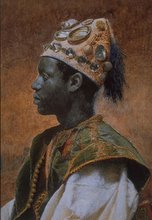The Zeros
The gangster administration in Washington
Responsible for the killing (in a way or another) of well over one million Iraqis (according to the most conservative estimates) and the displacement of more than four million others, the Bush administration has persevered in manipulating the facts and succeeded in stirring up factional and sectarian divisions within Iraq. Divide and rule as the old adage goes. The puppet regime in Baghdad, a rubber stamp of what ever Washington decides has shown complete incompetence and subservience and proved to be completely disconnected from the Iraqi people. Although one can only be pleased by the relative decrease in the number of terrorist attacks (from whatever source they might come) and casualties among civilians, the fact remains that Iraq is still under occupation by a colossal number of foreign troops, backed by some hundred thousands mercenaries; and that its oil resources have now been de facto mortgaged by major American oil companies through the euphemistically called Production Sharing Agreements (PSAs).
The Apartheid regime in Israel
Israel has shown, yet again, to those who had a shred of doubt about its real -barely hidden- intentions, that it is not, had not and will not be prepared to pay the price of JUSTICE, the only and genuine road-map for PEACE. Its lobby and supporting "think" tanks have shown, beyond any reasonable doubt how influential they were in shaping American foreign policy towards the question of Palestine. Scholars have yet again been silenced and the systematic accusation of anti-Semitism has been brandished to all those who dared challenging the received wisdom about Israel branded as the "only democracy in region," when it is the only remaining apartheid state in the World. The Gaza concentration camp has been squeezed into a cruel embargo which is aimed at collectively punish the Palestinians for having democratically voted in the wrong way. A stooge government has been anointed: "the legitimate government of Palestine," effectively playing the role of the I'D'F in oppressing the occupied people in Palestine. Signed agreements (remember Annapolis?) have been dishonoured and more illegal settlements have been built up on equally illegal colonies planted on the land stolen from the Palestinians.
Arab despots and potentates (without exception, from the Atlantic to the Arabian-Persian sea)
"We want to be free people in our countrie[s], free of foreigners such that they cannot oppress us or treat us unjustly, and free with respect to ourselves, such that no one of us can oppress or treat another unjustly."
Religious fanatics of all sides
The Heroes
President Hugo Chavez
Illan Pappé
The courageous Israeli historian has published at the beginning of this year, the English version of his book ""Ethnic Cleansing in Palestine." A refreshingly honest account of how Israel seeks, as it had always sought to, to systematically and methodically kill, harass, terrorise and push the Palestinians to the edge so that they lose hope and renounce their rights and eventually leave their homeland.
Norman Finkelstein
Another victim of the Israel lobby in America, forced to resign from his position for no reason other than being forensically objective about the realities of the middle east. Fascism is still alive and kicking!
John Pilger
Award-winning independent journalist and a renowned documentary film-maker. "The War on Democracy" is his latest opus. A startling reminder of the ravages that capitalism has already caused in Latin America, considered for decades to be the American (USA) preserve. Based on an arrogant imperial vision of the world and on the so-called Washington Consensus which theorized and underpinned the neo-liberal policies for the last two or three decades, successive American administrations made sure that no genuine democracy springs in the southern half of the continent: putting absolute potentates at the head of States, overthrowing democratically elected governments and sponsoring a class of plutocrats monopolizing their country's wealth at the expense of impoverished populations.
Aboubakr Jamaï
Happy new year to all.






